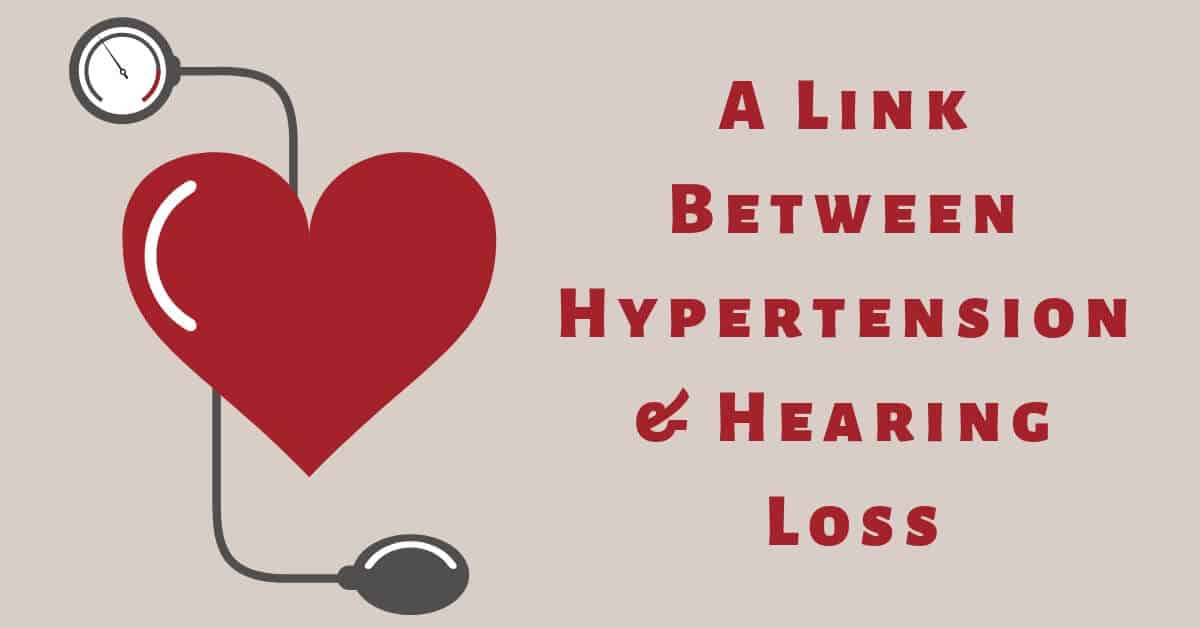
- A Step-by-Step Look at How Hearing Aids Make Sounds Sharper - May 5, 2025
- Causes of Conductive Hearing Loss? - April 27, 2025
- Can Treating Hearing Loss Reduce Stress? - April 15, 2025
Hypertension, also known as high blood pressure, currently affects nearly 70 million adults in the United States. It can be a huge risk factor for stroke and heart disease, and according to the Centers for Disease Control and Prevention, one in three adults suffer from high blood pressure.
What is Blood Pressure?
Blood pressure is a measure of the force of blood against your blood vessel walls. When your blood pressure is taken, two numbers are noted. The top number is the systolic reading. This measures the pressure when your heart pushes blood out. The bottom number is the diastolic reading, which measures the pressure when your heart is relaxed between beats and is not pumping any blood. If the blood pressure is high, it means that your heart is pumping the blood through your arteries very fast. This excessive force causes damage to the smooth lining of blood vessel walls, resulting in areas where fatty plaque (made of fat, cholesterol and other substances) can build up and make a bump. The bump gets bigger as more plaque sticks to it. The long-term effect of this is that the blood vessels collect a significant amount of fatty plaque, which diminishes or stops blood flow. This can occur anywhere in the body. In some people, the plaque bump will rupture and cause a traveling blood clot.
What Causes High Blood Pressure?
The causes of hypertension have not been proven, but scientists and nutritionists have their educated guesses. Several factors increase the risk of having high blood pressure such as high salt intake, smoking, obesity, lack of physical activity, significant alcohol consumption, stress, age and genetics. A recent study showed that only half of Americans with hypertension have it treated and under control. A contributing factor to this is that hypertension is usually not something you can feel. Most people do not know when their blood pressure increases, and need to have their blood pressure checked to even be aware if they are within healthy limits or not.
Hypertension and Hearing Loss
If an individual has hypertension, the blood vessels are damaged all over the body. This can include the vessels that carry blood to the ears. Studies show that people who have an increase in blood pressure have a higher rate of hearing loss. If the blood pressure stays high for a long period of time, it will permanently damage the hearing organs. For a person who has high blood pressure for a short time, the hearing may return to normal once the blood pressure is lowered. Because hearing loss affects quality of life, it is important to address the underlying cause of hearing loss rather than simply putting hearing aids on someone as the hearing continues to worsen.
Hypertension and Stroke
There is a high correlation between hypertension and the incidence of a first stroke. 8 out of 10 people having a first stroke also have hypertension, making it extremely important for a person with hypertension to seek medical attention. This fact also shows us that a yearly examination with a primary care physician is important to manage your health, even if you feel good.
Sudden Change in Hearing
The American Heart Association published an article about the relationship between sudden hearing loss and hypertension. Researchers found that there is a clear correlation between a sudden change in hearing and blood pressure. The exact specifics are not well understood yet, but a sudden change in hearing is a significant warning flag and should not be ignored. This study showed that a person with sudden severe hearing loss was 150 percent more likely to experience a stroke within two years of the change in hearing!
Staying Healthy
The body changes as individuals age, making it important to have routine medical checkups even if you feel fine. Your physician can help you manage your changing body and keep you informed of anything that may need attention before it causes significant disability. Part of the exam will be focused on your history and family history of diseases. Physicians will check blood pressure, check for diabetes and cholesterol levels, as well as any physical concerns you have. You can ask for vision and hearing exams as well. Stay informed about your physical and hearing health to maintain the best quality of life.
Blood Pressure Checks and Hearing Tests Go Together
If you have high blood pressure, visit us at Hearing Aid Specialists of the Central Coast. Blood pressure and hearing loss go hand-in-hand, and recognizing the connection could save your hearing – or even your life.
